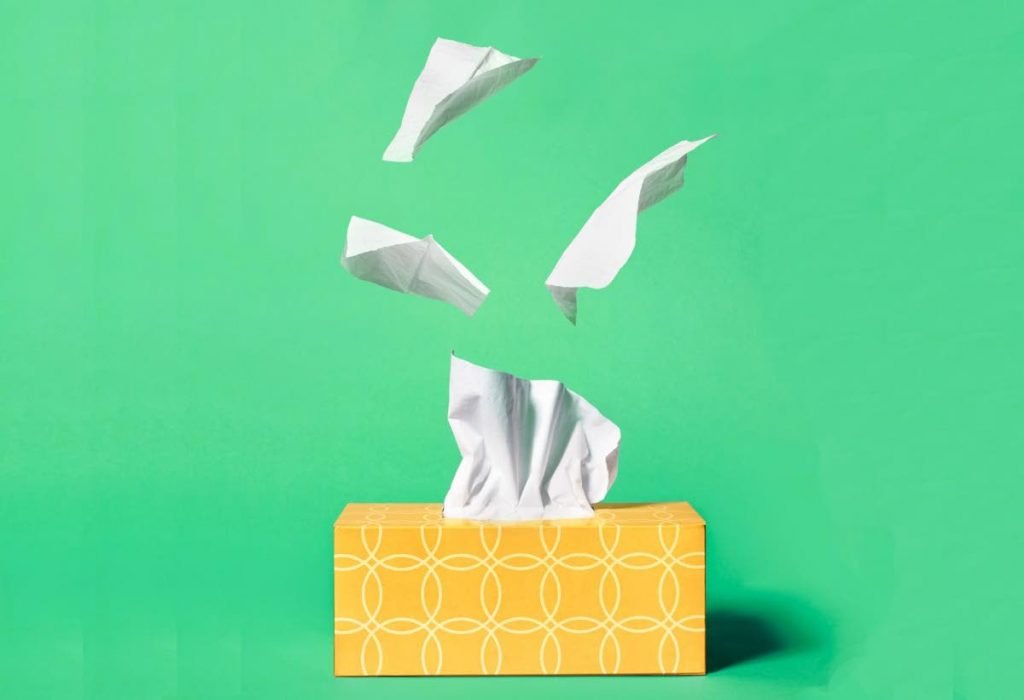Protect yourself – and others – from illness

Every year, without fail, I get a really bad cold or flu during the Christmas into Carnival season, with an irritating, residual dry cough that runs well into March. Most times I get it from my son, who picks it up at school and harbours it for three or four days before dropping it into my lap. For a number of reasons (I think age tops the list) I tend to harbour that fugitive for way longer than I care to.
This time around though, knock on wood, the 2019 into 2020 pesky cold and flu has missed me. Maybe it's because, in preparation for what I knew was coming, I took better care to boost my son's immune system than in years past, indirectly helping to better immunise myself. Or maybe it's because I took the H1N1 shot. I can't say. All I know is that I'm glad I don't have to struggle through nursing a sick child and myself back to health as we deal with the stresses of preparing for the Secondary Entrance Assessment exam on April 2 – a disease by itself.
But now there is a new pandemic on the horizon, about which I don't think I know enough. A new coronavirus, which originated in Wuhan, China, has so far been the cause of at least 25 deaths and has infected 830 people (at the time of writing this article).
"The outbreak originates from animals and the source is thought to be a seafood market in Wuhan which also traded in other live animals such as marmots and bats," and article published in telegraph.co.uk said. Cases of the virus has so far been identified in Thailand, Taiwan, Japan, Vietnam, the US, Singapore and South Korea.
According to the World Health Organisation (WHO), the virus causes "a fever, fatigue, sore throat and dry cough in the early stages of the disease. As the illness progresses, patients may experience difficulty breathing.
"But these symptoms – similar to many other respiratory diseases – are what make it so difficult to control."
The virus can be airborne and spread from an infected person to others through coughing and sneezing. It can also be spread through close personal contact and touching eyes, mouth or nose after touching contaminated surfaces or objects.
Like the common cold, there are no specific treatments for coronaviruses. The symptoms are treated, with special care being given to the lungs and other organs. Researchers have already begun working on a vaccine, which may not be available until a year from now, according to CNN.
Not good news for a country at the height of the Carnival season, that will see thousands of visitors from around the world who come to partake in the Greatest Show on Earth. The powers that be have given the assurances that they are being proactive by screening international travellers at key ports of entry, preparing facilities to quarantine and treat any possible cases of the virus, and continually monitoring the situation. But the buck does not stop with them. As parents and guardians, it is our duty to make sure that we and our children are prepared for the possible entry of the virus into TT. As with the prevention of any other strain of the cold and flu, there are a number of things we can do to protect ourselves, our children and others against contracting and spreading the coronavirus.
Protect yourself
Frequently wash your hands with soap and water for at least 20 seconds
Avoid touching your eyes, nose, or mouth with unwashed hands
Avoid close contact with people who are sick
Wear a mask if you think it is necessary.
Protect others
If you have cold-like symptoms:
Stay home while you are sick
Avoid close contact with others
Cover your mouth and nose with a tissue when you cough or sneeze, then throw the tissue in the trash and wash your hands
Frequently clean and disinfect objects and surfaces (doorknobs, counter tops, phones etc.)
Treatment
There is yet no available vaccine to treat the coronavirus and most people are advised to let the virus run its course. However, there are ways in which to relieve the severity of the symptoms.
Take hot showers or use a room humidifier to help alleviate sore throats and coughs
Stay hydrated by drinking plenty of liquids
Get plenty of rest
If symptoms are severe see a doctor or head to the nearest emergency room.


Comments
"Protect yourself – and others – from illness"